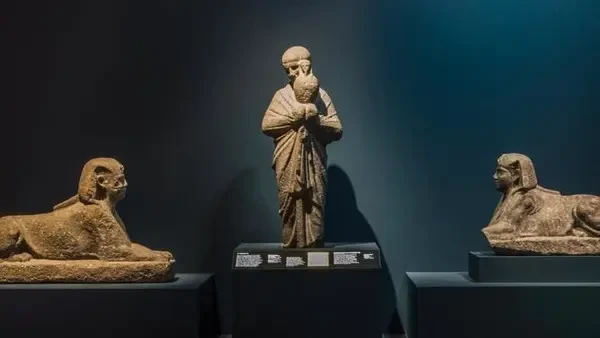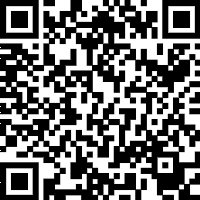The Remote Sensing Authority organizes the GMES and Africa Regional Forum in cooperation with the African Union
Dr. Islam Abu Al-Magd delivers the opening statement on behalf of the Minister of Higher Education.
Over 200 African researchers and engineers trained in space and remote sensing this year in Egypt.
The Forum discusses the role of remote sensing and its multiple services in the development of the African continent.
The regional forum of the GMES and Africa programme, entitled "Earth observation technologies for resilience and innovation in Africa," organized by the National Remote Sensing and Space Science Authority in cooperation with the African Union, was launched today and is being held from 27 to 30 November, under the auspices of the African and European Unions, in Sharm el-Sheikh.
The opening session of the Forum was opened by Dr. Islam Abu Al-Magd, Chairman of the National Authority for Remote Sensing and Space Science and Adviser to the Minister for African Affairs on behalf of Dr. Ayman Ashour, Minister of Higher Education and Scientific Research, Prof. Mohammed Belhasin, President of the African Union Commission on Education, Science and Technology, and Ms. Catherine Gwitt, Director-General of the European Commission in Egypt, Dr. Tidien Ouattara, Coordinator of the GEMS and Africa Programme of the African Union Commission.
Dr. Islam Abu Al-Magd, speaking on behalf of the Minister of Higher Education and Scientific Research, said Dr. Ayman Ashour welcomed all participants to the Forum and conveyed His Excellency's wishes for the success of the Forum, noting that natural resources, transboundary environmental crises, climate change, poverty, unemployment and conflict were among the key issues that required information to be resolved. Transborder cooperation, coordination and management would be required to provide decision makers with support for their decisions and plans of action. These challenges, Egypt believes that space technology, remote sensing and digital transformation will be an engine for African economy to achieve significant social and economic growth.
Dr. Islam Abu Al-Magd made it clear that Egypt has been using Earth observation since the 1970s. The Remote Sensing Centre, which has been transformed into the National Remote Sensing and Space Science Authority of the Ministry of Higher Education and Scientific Research, has been set up to promote research, development and innovation in space applications for the benefit of society. The African continent has succeeded in taking strong steps forward in space and in developing its continental space policy and strategy. It has succeeded in establishing the African Space Agency, hosted by Cairo. It will lead all space activities on the continent and ensure that infrastructure, data and services reach member States on the continent.
He drew attention to the success of the partnership between Egypt, African States and the Commission of the African Union, through policy and strategic development, and stressed Egypt ' s continued full support for the operation of the Agency in order to achieve its objective, noting the importance of the subject of Earth observation. In particular, the GMES and Africa programme, as well as the partnership with our European partner, have gone beyond the application of remote sensing data in the thematic areas of land, water, the coast and the sea to provide added value for services and information. Egypt offers annual scholarships to African member States in postgraduate studies, particularly in space science and applications, all relevant disciplines. These grants are developing capacity, as well as short-term technical training courses. For example, more than 200 African researchers and engineers have been trained in space and remote sensing this year.
The Forum is witnessing the participation of Dr. Islam Abu Al-Magd in open discussion sessions and will also give a scientific lecture on "The role of remote sensing techniques in achieving sustainable development and Africa Agenda 2063."
During the Forum activities and outputs will be presented for a number of projects in the areas of marine and terrestrial environments, as well as outputs and achievements for a number of projects funded by the GMES and Africa programme, particularly in land, coastal and marine resources.
Several discussion sessions will also be held on (the role of remote sensing and the multiple services that can be provided for the comprehensive development of the African continent, the present position, the institutional and political framework, the sustainable environment and socio-economic growth in Africa, how to access Earth observation data, strengthening engagement with regional and national institutions for the use of Earth observation, to ensure quality, impact and sustainability, progress in the development of operational services for the second phase of the GMES and Africa programme, capital development and use to meet the market needs of Africa, partnership and exchange of experience and information, and awareness of Earth observation and monitoring) as well as on several important topics.
It should be noted that the GMES and Africa Regional Forum discusses the role of remote sensing and its multiple services in the development of the African continent and the promotion of ways and mechanisms to utilize all its resources. The Forum includes service providers, policy makers, academics, a number of representatives of the private sector and communities, as well as end-users, as well as the presence of a large number of outstanding UN-Women professors in the fields of environment, agriculture and marine science, and a number of scientists, researchers and representatives of the African continent from a variety of fields.











